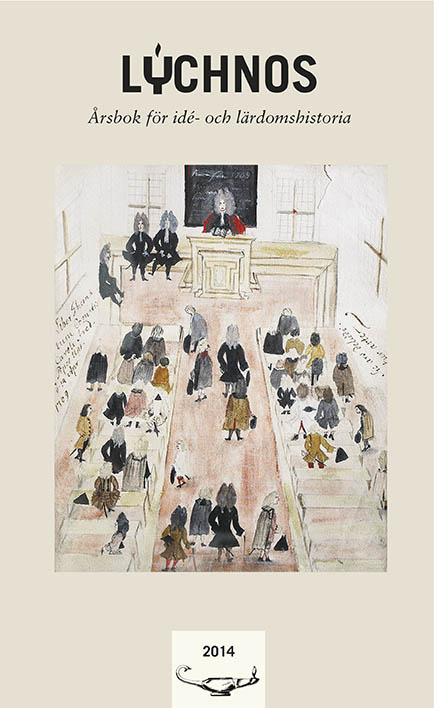”Det heliga som har hänt mig”
En filosofisociologisk studie av Vitalis Norströms Hvad innebär en modern ståndpunkt i filosofien?
Abstract
This article studies the theoretical standpoints that the Swedish philosopher Vitalis Norström (1856–1916) took in his book What is a modern position in philosophy? (1898). The focus of the article is not Norström’s philosophy as such, but rather three different sociological theories about how to make intellectual choices—those of Pierre Bourdieu, Randall Collins, and Neil Gross, respectively—where Norström’s philosophy primarily is used as a test case for the broader applicability of the sociological theories in question. In What is a modern standpoint in philosophy? Norström publicly broke with the Boströmian current of philosophy of which he had considered himself an adherent until then. In his book, Norström also turned against post-Kantian philosophy (Hegel, Fichte and Schelling) as well as against naturalism. The common thread in his criticism of both idealism (Boströmianism as well as post-Kantian philosophy) and naturalism is the argument that none of these leave any room for so-called “rational experiences” in the form of religious and ethical experiences. Norström instead proposed a modernized idealism with a strong philosophy-of-life orientation. In this article I argue that Norström’s standpoints should be understood in terms of his perception of himself as a defender of the personal and reasonable life over against the mindless and irrational elements of human existence. The article thus gives support to Gross’s social psychological theory according to which intellectual self-concepts affect choices of theoretical positioning. In contrast, the attempts to apply Bourdieu’s and Collins’s theories to the empirical material at hand ultimately fail. In addition, the article supports the view of the new sociology of ideas that macro-sociological factors mainly have an indirect impact on knowledge production. The article, however, also criticizes Gross’s theory for not clarifying how strategic behavior relates to behavior based on an intellectual self-conception.
Downloads
Publicerad
Nummer
Sektion
Licens
This work is licensed under a Creative Commons Attribution 4.0 International License. The copyright for the work published in Lychnos remains with the authors.


